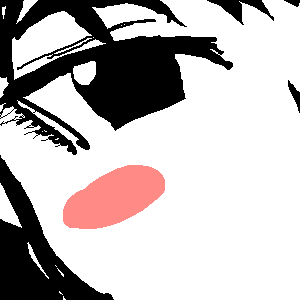I go to anime conventions for many reasons, but when it comes to attending events within the con itself, my main focus is on panels. Industry panels, fan panels, history panels, I’m there to learn and I enjoy doing so. However, I know that in the grand scheme of the con “scene,” I am in the minority. At cons across the nation, the best ways to attract an audience are through masquerades, AMV contests, J-Rock concerts, and to a lesser extent con raves.
It would be very easy to lament that not more people are attending panels that could potentially expand their knowledge and scope as anime fans (or geeks in general). “Look at this sad state of affairs! Don’t these supposed anime fans care at all about anime?” But the answer is that they do care about anime and the fandom that surrounds it; they just choose to take it in different directions.
How do you develop your fandom? When someone reads up on anime history or when they go to informative panels at a con, they are trying to grow the “knowledge” aspect of their fandom. Here, a fan tries to become a greater fan by learning more about the subject they love, and that is certainly a valid way to do it and one I subscribe to myself. But when someone joins a specific forum of like-minded individuals, attends group panels to celebrate their favorite series, or even calls for FREE HUGS, they aren’t simply being “shallow anime fans” who don’t care about being fans of anime, but are instead choosing, consciously or otherwise, to grow the “social” aspect of their fandom. They are already fans, and they want to find kindred spirits who will understand why they are the way they are without explanation. It’s the desire to belong.
Growing your anime fandom isn’t simply limited to “knowledge” through study and “socialization” through outreach, however. Although there’s reading about anime, there’s also watching as much anime as you possibly can, to broaden your “direct experience” within the medium itself. There’s “self-expression,” the desire to show your fandom to the world, whether through fanart or fanfiction, cosplaying or creating AMVs, or, heck, writing an anime blog. Even seeing these things is in itself a way to affirm one’s own fandom. And it’s not even like these areas are rigidly separate from each other. Socializing with fans can bring you knowledge through an exchange of ideas. Gaining more knowledge can put you in better positions to talk to other fans, to learn to understand others.
When you get down to it, there’s a most fundamental part of being a fan, something that I think everyone can relate to even if they don’t agree on how to get there. I’m talking about that feeling of truly enjoying something and loving every moment of it. At that point, whether we want to have more of it or share it with others or any number of paths, we know at that point that we are truly fans.

